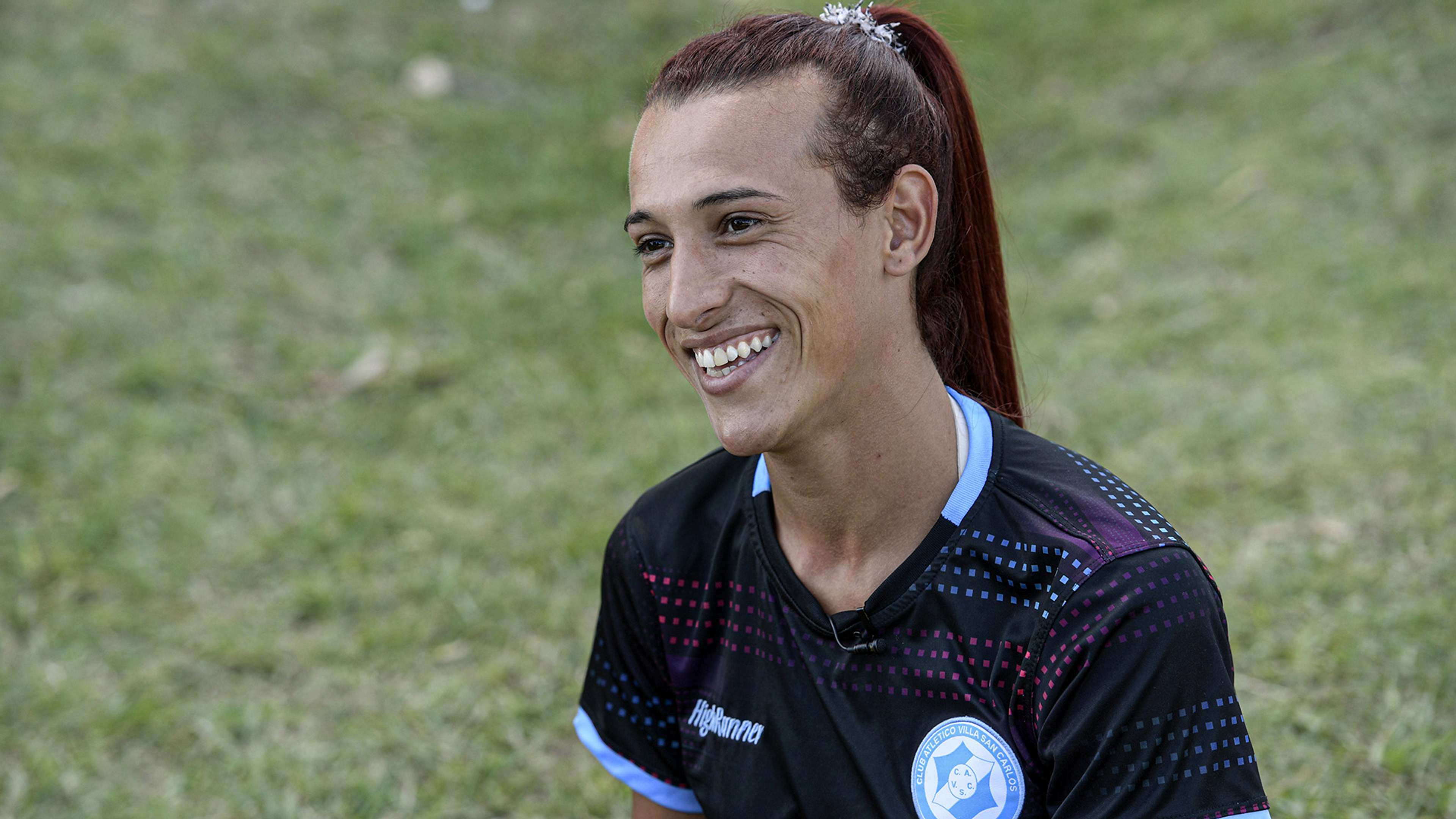Trans footballer Mara Gomez has opened up on the "relief" she felt when she made her debut in the women's game, with the Estudiantes player reflecting on a career that has seen her battle discrimination and threats of violence to stand where she is.
Gomez became the first transgender player in the Argentina's women's championship in December 2020, making her debut for Villa San Carlos.
Now, she has spoken out on the rush of emotions she faced after finally realising her professional dream in her first game against Lanus over a year-and-a-half ago in an interview with GOAL Argentina, reflecting on the journey she had to make to become who she is.
Why did Gomez feel relief after her debut?
"The day I debuted I felt a relief, I felt that a weight had been lifted off my shoulders and that I had achieved something that I didn't think I would be able to achieve," Gomez stated. "Something that seemed impossible to me.
"It is very difficult to be able to think of a trans girl within what soccer is, a sport that was always considered that only men could practice it and since those of us who did not belong to that gender or that sex had to pay costs to be able to be and belong.
"Being a trans girl in this environment was very difficult to get to. It meant years of struggle for the entire group and is the beginning of new opportunities for a lot of generations. I always say it, football saved my life, football was a contention, it was and is everything.
"Beyond the competition, it is something that you love to do and that is part of your life. I think this opens up opportunities for a lot of generations of our group that have always been violated, violated, discriminated against and excluded.
"For me, transphobia has to do with breaking paradigms and perspectives and beginning to see within society with a more unstructured vision, that we stop thinking that there are only two genders or two sexes and that you have to comply with a behavior or a rule in order to be 'normal'."
What has Gomez said about discrimination and violence?
Elsewhere, Gomez spoke out on the threats and struggles faced by the trans community, adding that violence is institutionalized towards them - and that her decision to pursue her career does not change the targets she has on her back.
"It is what we live as people who belong to the LGBT community," she added. "[We're] constantly paying costs to give us the opportunity to live a decent life; the opportunity to study, work, have a family, play sports.
"Violence is everywhere in our environment but mainly in institutions, such as the cost that I have to pay for my body to be able to play soccer. Violence is just that, the lack of opportunity and the equity that is lacking in any social sphere."
